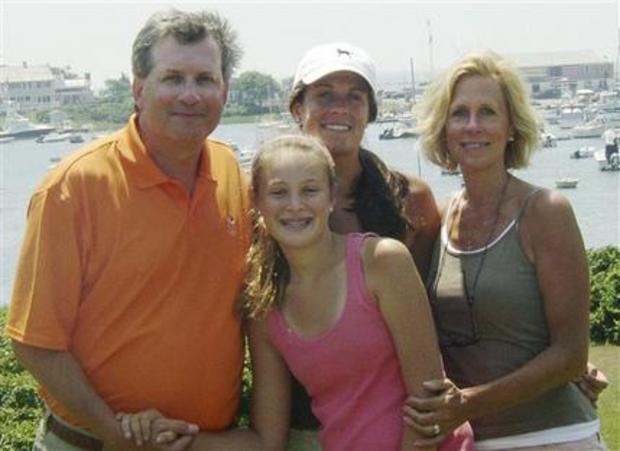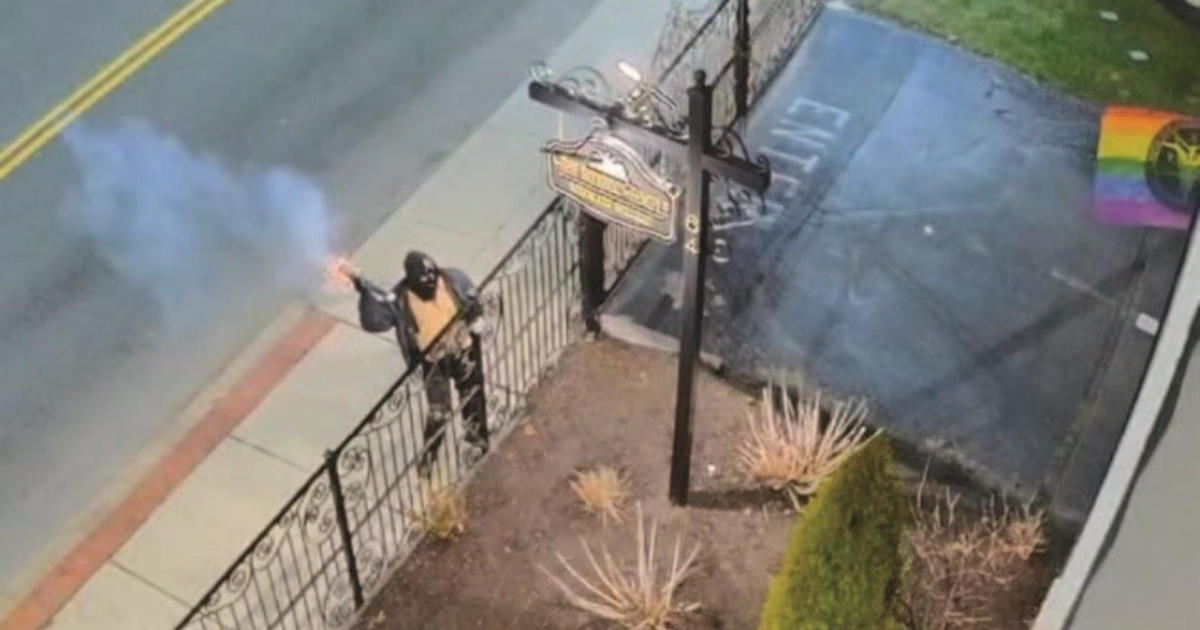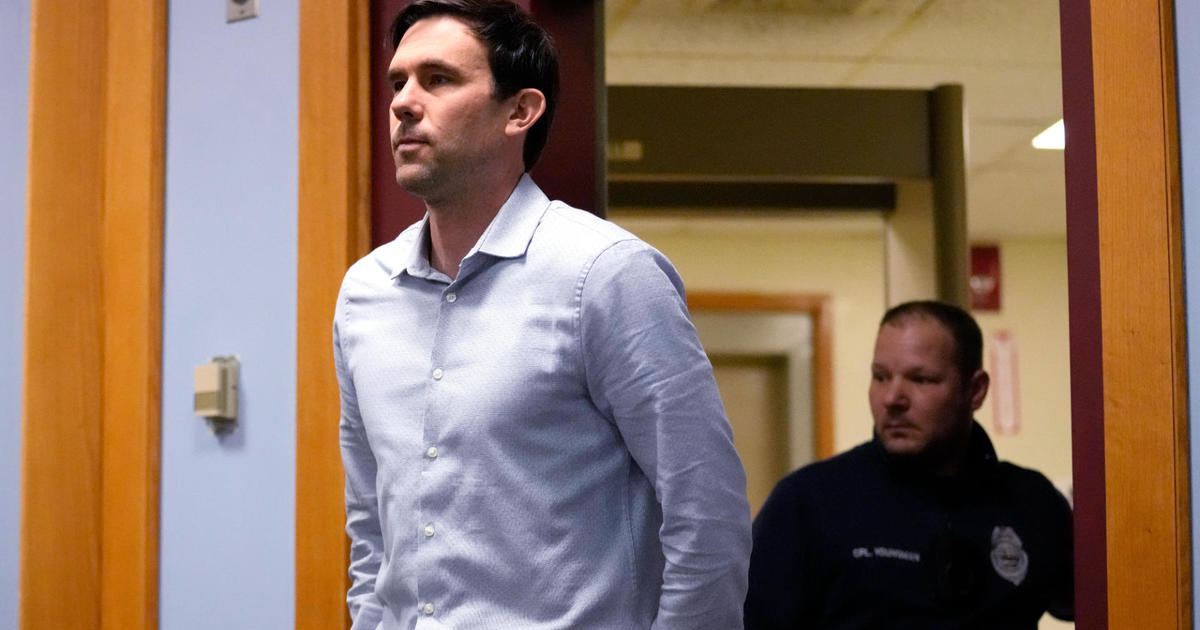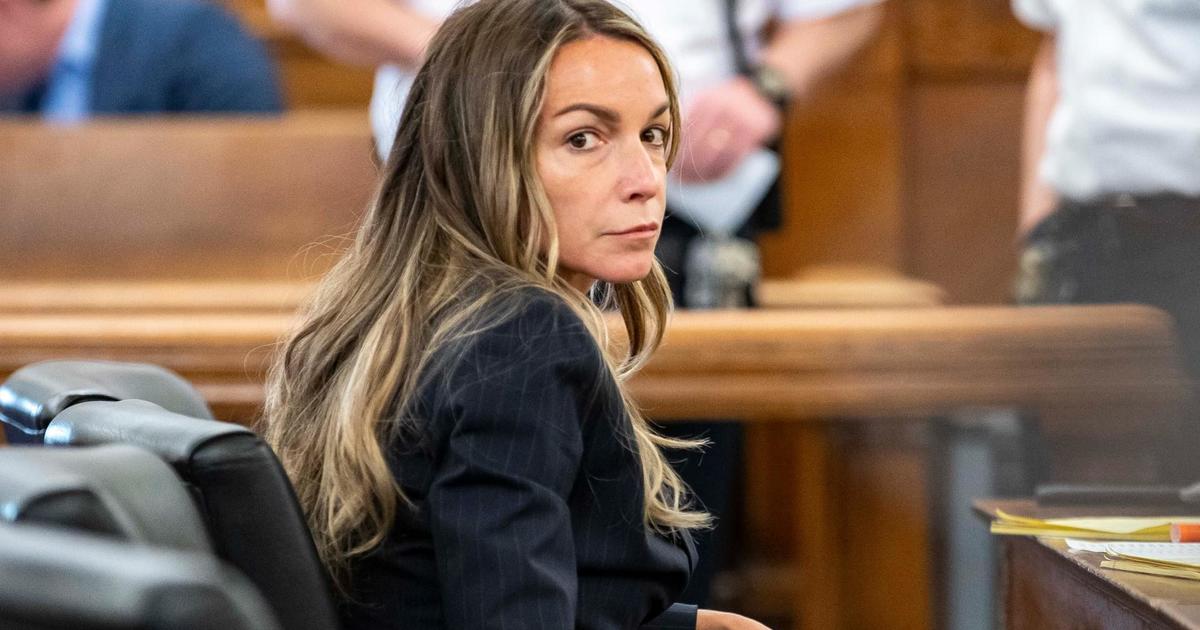Conn. Man Condemned To Die For Fatal Home Invasion
NEW HAVEN, Conn. (AP) - A Connecticut man was condemned to death Monday for a night of terror inside a suburban home in which a woman was strangled and her two daughters tied to their beds, doused in gasoline and left to die in a fire.
Jurors in New Haven Superior Court voted unanimously to send Steven Hayes to death row after deliberating over the span of four days. Judge Jon Blue will impose the sentence on Dec. 2.
"You have been explosed to images of depravity and horror that no human being should have to see," Blue said in thanking the jurors for their service.
Dr. William Petit, the husband and father of the victims, said the verdict was about justice and did not bring closure.
"It's a hole with jagged edges," he said. "Over time the edges may smooth out a little bit, but the hole in your heart, the hole in your soul is always there."
Listen to more of what he had to say.
Podcast
Dr. William Petit speaks with reports outside the courthouse Monday.
Hayes' attorneys had tried to persuade jurors to spare him the death penalty by portraying him as a clumsy, drug-addicted thief who never committed violence until the 2007 home invasion with a fellow paroled burglar. They called the co-defendant, Joshua Komisarjevsky, the mastermind and said he escalated the violence. They also said Hayes was remorseful and actually wanted a death sentence.
But prosecutors said both men were equally responsible and that the crime cried out for the death penalty, saying the family was tormented for seven hours before they were killed.
Hayes looked straight ahead and had no obvious reaction as the jury's sentence was announced. He will join nine other men on Connecticut's death row. The state has only executed one man since 1960, so Hayes will likely spend years, if not decades, in prison.
Komisarjevsky will be tried next year.
Authorities said Hayes and Komisarjevsky broke into the house, beat Dr. William Petit, and forced his wife, Jennifer Hawke-Petit, to withdraw money from a bank while the rest of her family remained under hostage at home. Hayes then sexually assaulted and strangled her, authorities said. Komisarjevsky, who will be tried next year, is charged with sexually assaulting their 11-year-old daughter, Michaela.
Michaela and her 17-year-old sister, Hayley, were tied to their beds and doused in gasoline before the men set the house on fire, according to testimony. The girls died of smoke inhalation.
The crime was so unsettling that it became a key issue in the death penalty debate in the governor's race and led to tougher Connecticut laws for repeat offenders and home invasions. Gov. M. Jodi Rell cited the case when she vetoed a bill that would have abolished the death penalty.
To determine Hayes' punishment, the jury weighed so-called aggravating factors cited by prosecutors, including the heinous and cruel nature of the deaths, against mitigating factors argued by Hayes' attorneys.
The jurors were individually polled after the verdict Monday. One woman was crying and confirmed her verdict in a hoarse voice while a male juror said "yes" loudly and with conviction when asked to confirm his. Hayes was alternately looking straight ahead and to the opposite side of the courtroom from jury. His attorney, Tom Ullmann, sat somewhat slumped in his chair.
Ullmann had suggested prison would be more harsh than death for Hayes.
Hayes did not testify during the trial or penalty phase, but told a psychiatrist he wanted to "look like a monster" by taking the stand and expressing no remorse so that the jury would sentence him to die. Hayes also said he had repeatedly tried to kill himself after the crime because he felt guilty and remorseful and feared isolation in prison the rest of his life.
Hayes' attorneys focused heavily on Komisarjevsky, even calling a witness who said his "completely dead eyes" made him look like the devil. They cited his writings in which he described how his "dark shadow was let loose" as he beat the doctor and the pleasure he got from terrorizing the man's wife and two daughters.
Komisarjevsky's writings, however, also blamed Hayes for escalating the violence by strangling Hawke-Petit.
Prosecutors said it was Hayes who initiated the crime, citing his confession to police in which he said he called Komisarjevsky shortly before the crime because he was financially desperate. They also noted that Hayes took Hawke-Petit to the bank to withdraw money, raped and strangled her, bought the gasoline and poured it in the house.
Hayes' attorneys tried to humanize him, portraying him as a proud father and a hard worker who was trying to pick up the pieces of his life as he got out of prison shortly before the crime.
Hayes "could be a likable person," his attorney, Patrick Culligan, told the jury. One of his employers said Hayes tried to intervene to protect her after she got into a verbal argument with another worker.
Hayes' defense called a psychiatrist who said Hayes was in an extreme emotional state triggered after Komisarjevsky falsely told him he had killed the girls while Hayes was with their mother at the bank. Prosecutors rejected that argument, saying Hayes own confession showed he knew the girls were still alive when he returned from the bank.
During the trial, jurors heard eight days of gruesome testimony, saw photos of the victims, charred beds, rope, ripped clothing and ransacked rooms.
Hayes was convicted of six capital felony charges, three murder counts and two charges of sexually assaulting Hawke-Petit. The capital offenses were for killing two or more people, the killing of a person under 16, murder in the course of a sexual assault and three counts of intentionally causing a death during a kidnapping. He was sentenced to death for all six.
(Copyright 2010 by The Associated Press. All Rights Reserved.)




